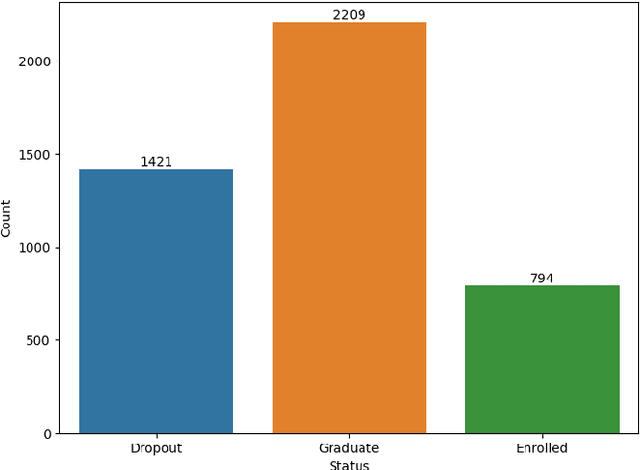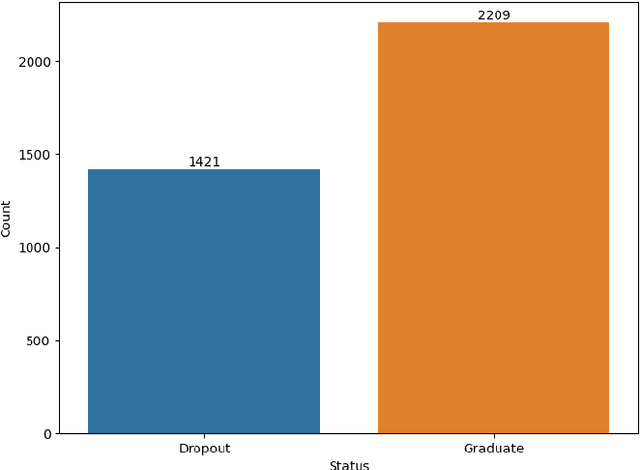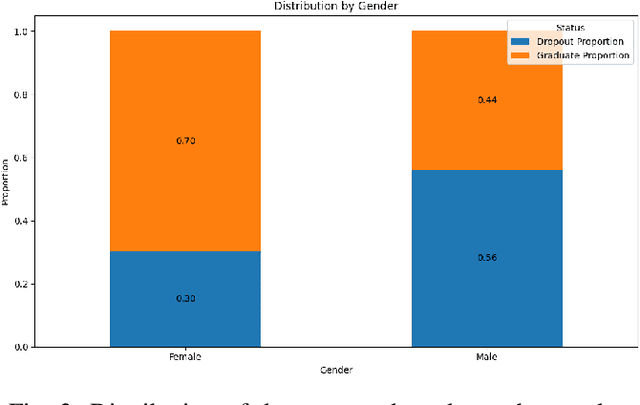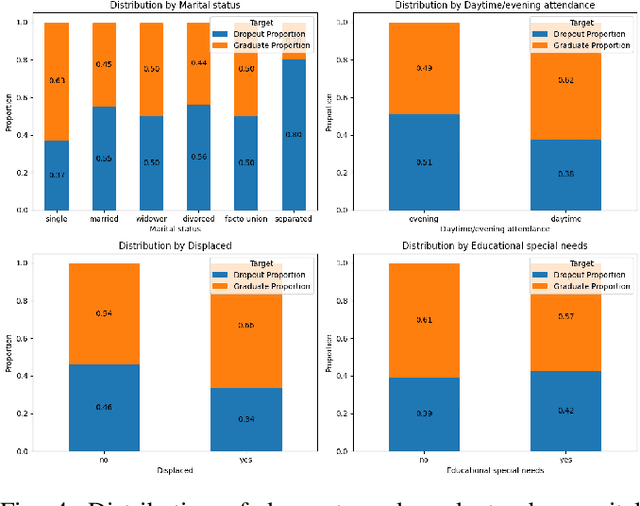Eliot Yoo
Why Do Students Drop Out? University Dropout Prediction and Associated Factor Analysis Using Machine Learning Techniques
Oct 17, 2023



Abstract:Graduation and dropout rates have always been a serious consideration for educational institutions and students. High dropout rates negatively impact both the lives of individual students and institutions. To address this problem, this study examined university dropout prediction using academic, demographic, socioeconomic, and macroeconomic data types. Additionally, we performed associated factor analysis to analyze which type of data would be most influential on the performance of machine learning models in predicting graduation and dropout status. These features were used to train four binary classifiers to determine if students would graduate or drop out. The overall performance of the classifiers in predicting dropout status had an average ROC-AUC score of 0.935. The data type most influential to the model performance was found to be academic data, with the average ROC-AUC score dropping from 0.935 to 0.811 when excluding all academic-related features from the data set. Preliminary results indicate that a correlation does exist between data types and dropout status.
Predicting Students' Exam Scores Using Physiological Signals
Jan 28, 2023Abstract:While acute stress has been shown to have both positive and negative effects on performance, not much is known about the impacts of stress on students grades during examinations. To answer this question, we examined whether a correlation could be found between physiological stress signals and exam performance. We conducted this study using multiple physiological signals of ten undergraduate students over three different exams. The study focused on three signals, i.e., skin temperature, heart rate, and electrodermal activity. We extracted statistics as features and fed them into a variety of binary classifiers to predict relatively higher or lower grades. Experimental results showed up to 0.81 ROC-AUC with k-nearest neighbor algorithm among various machine learning algorithms.
 Add to Chrome
Add to Chrome Add to Firefox
Add to Firefox Add to Edge
Add to Edge